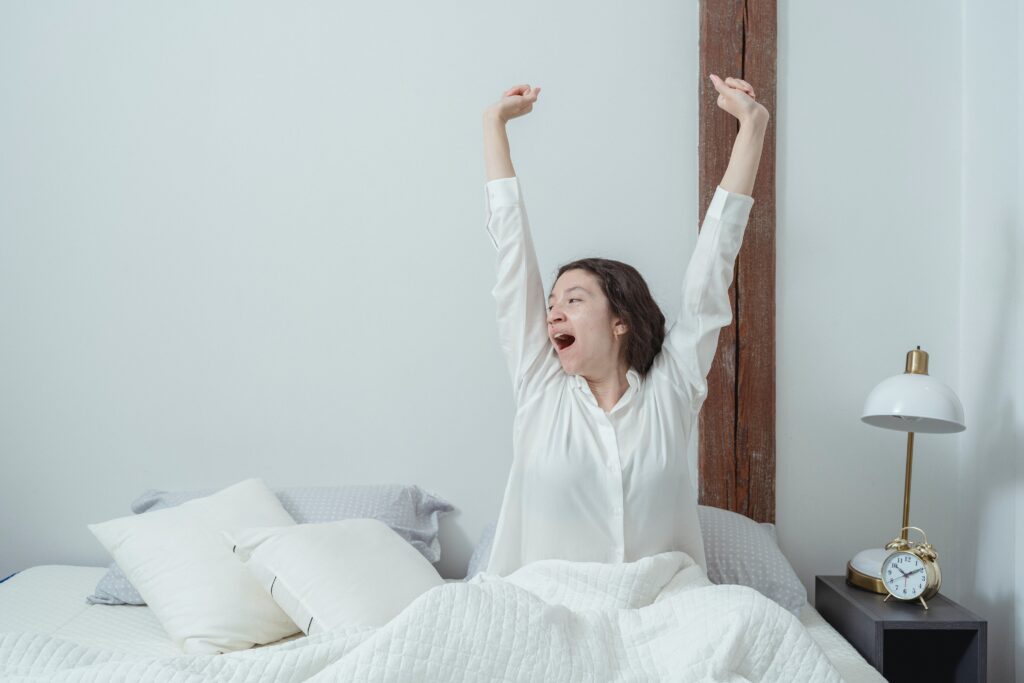Sleeping Recommendation
The duration and amount of sleep required varies based on age. Even scientific research has confirmed the same. Some common culprits that can impact sleep include:
- Excessive caffeine and alcohol consumption
- Too much screen time (e.g., watching TV or using electronic devices)
- Not doing enough exercise in the morning
- Doing intense exercise before bedtime
- Not having a proper environment
- Late-night phone calls
- Not having regular timing and schedule for sleep
- Not having consistent wake time
- Sleeping empty stomach
- Not doing rituals to relax before sleeping
- Not setting boundaries in work and social life
If you can eliminate these factors and still aren’t getting the sleep you need, you may consider visiting a sleep specialist.
| Age Range | Hour of Sleep |
| 0 to 3 months | 14 to 17 hours |
| 4 to 11 months | 12 to 15 hours |
| 1 to 2 years | 11 to 14 hours |
| 3 to 5 years | 10 to 13 hours |
| 6 to 13 years | 9 to 11 hours |
| 14 to 17 years | 8 to 10 hours |
| 18 to 64 years | 7 to 9 hours |
| 65 or more years | 7 to 8 hours |
Guidelines on Sleep Times
There is no one-size-fits-all answer to this question, as everyone’s sleep needs vary. However, according to the American Academy of Sleep Medicine (AASM), adults require between 7 and 9 hours of sleep per night. Guidelines on sleep times are listed below in nine age range groups.
The guidelines specified above are for different age groups. The guideline is a recommendation on the ideal amount of sleep required. But for some of you, these may not align with your sleeping pattern. These are different due to your way of living, food habits, and work-life balance. If you’re finding it difficult to get the amount of sleep you need, it may be helpful to evaluate your lifestyle and make some changes.
While there is no “right” amount of sleep, getting the recommended amount each night can help you feel more alert and energetic during the day and enjoy yourself. However, according to the National Sleep Foundation, adults need between seven and nine hours of sleep per night. If you are feeling tired and are not getting enough sleep, it is important to change your sleep habits. Try to schedule regular sleep sessions and avoid caffeine and alcohol before bed. Additionally, avoid using electronic devices in bed and limit your exposure to bright light in the morning. It is better to take a challenge to bring discipline to sleeping patterns.
Do you find it hard to stay on a regular sleep schedule? One way to get more discipline in your sleep pattern is to bring in some structure. For example, setting an early bedtime and wake-up time can help you get more rest. You can also use a sleep aid to help you fall asleep and stay asleep. There are supplements available to get up early and more energetic. If you find it hard to stick to a sleep schedule, consider talking to your doctor about medication that can help you get more rest.



